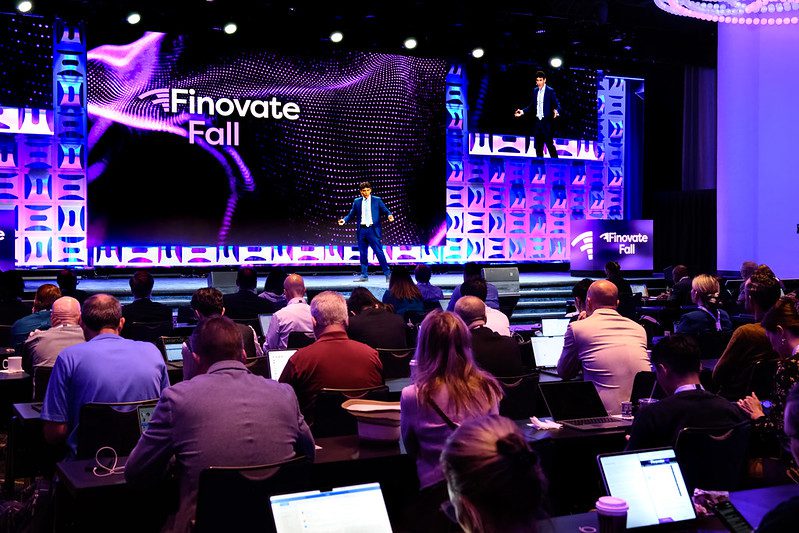
As summer winds down, it’s a good time to start looking ahead to FinovateFall. This year’s conference returns to the Marriott Marquis in Times Square, New York, from September 8 through 10 (register early to save!). With the event just over a month away, now is the time to lock in your travel plans and start mapping out your agenda.
Financial services continues to evolve rapidly, and this year’s keynote lineup reflects that urgency. From AI and customer experience to stablecoins and lending, these speakers will offer insights into where the industry is headed and how to stay ahead. Here’s a look at some of the voices you’ll hear on stage.
General session
Beth Haddock, Board Member and Global Policy Lead, Stablecoin Standard
Beth Haddock will take the stage at 4:20 PM on Monday, September 8 to explore how stablecoins are moving from the regulatory fringe to the strategic foundation of modern banking. With the GENIUS Act poised to redefine digital dollar issuance, Haddock will break down the operational, compliance, and competitive pressures facing banks and trust companies. From payments and custody to customer expectations, this session will spotlight what leaders need to know now as stablecoins become embedded in the financial ecosystem.
Jon Lakefish, Founder of the Lakefish Group
On Wednesday, September 10 at 9:45 AM, Jon Lakefish will examine how financial institutions can use AI to build customer trust and loyalty. In a world where technology drives personalization, Lakefish will share how banks can design AI-powered customer experiences that feel authentic and deliver long-term value.
Ben Feller, Partner at the Maslansky Partners
Also on Wednesday at 3:10 PM, Ben Feller, Partner at Maslansky + Partners and former Chief White House Correspondent for the Associated Press, will share his front-row view of presidential leadership and media. Drawing on six years covering Presidents George W. Bush and Barack Obama, Feller will offer a candid, behind-the-scenes look at high-stakes decision-making, communication strategy, and the power of narrative in moments that shaped history.
Industry Stage sessions
Yury Pukha, CEO of Intelligent Edge Consulting
At 10:50 AM on Wednesday, September 10, Yury Pukha will lead the AI industry stage with a deep dive into the current landscape of artificial intelligence in financial services. Drawing on insights from large-scale implementations, Pukha will explore what’s working, what’s not, and the critical lessons financial institutions must understand to scale AI successfully.
Stephanie Miracle, FedNow Client Specialist, Federal Reserve Financial Services
Also at 10:50 AM on Wednesday, September 10, on the Payments stage, Stephanie Miracle will tackle the evolution of real-time payments. As RTP and FedNow gain momentum, Miracle will discuss whether faster is always better and will also consider the challenges institutions face when building products on top of these instant payment rails.
Jason Mikula, Publisher, Fintech Business Weekly
On the Lending industry stage at 10:50 AM on Wednesday, September 10, Jason Mikula will share his perspective on the growing opportunity in small business lending. With demand for capital on the rise, Mikula will outline how financial institutions can effectively tap this market and deliver products that resonate with small business owners.
Nick Fok, Managing Partner, Erez Capital
At 12:05 PM on Wednesday, September 10, on the AI stage, Nick Fok will explore the rise of agentic AI and its potential to reshape financial services. As models become more autonomous and capable of making decisions, Fok will discuss what this shift means for innovation, risk, and the future of financial institutions.
Sarah Welch, Managing Director at Curinos
Also at 12:05 PM on Wednesday, September 10, Sarah Welch will join the Customer Experience industry stage to examine the power of brand distinctiveness. In a crowded marketplace, Welch will highlight how bold, differentiated branding is becoming a key driver of customer growth, and what it takes to stand out.
Ryan Miller, Vice President and Senior Counsel at the American Bankers Association
Rounding off the list, Ryan Miller will speak on the Open Banking stage at 12:05 PM on Wednesday, September 10. Miller will explore how open data could reshape the US banking landscape, what regulatory and strategic shifts are on the horizon, and why early movers stand to benefit the most.
These keynote and industry stage sessions offer timely insights from leaders at the forefront of innovation. Whether you’re focused on AI, payments, customer experience, or regulation, FinovateFall’s agenda is packed with ideas to inform your strategy and spark new thinking. Registration is now open! We look forward to seeing you in New York this September.










